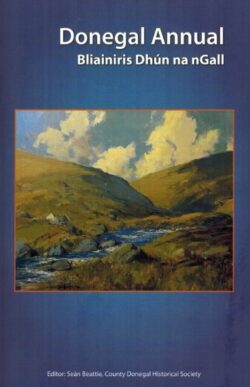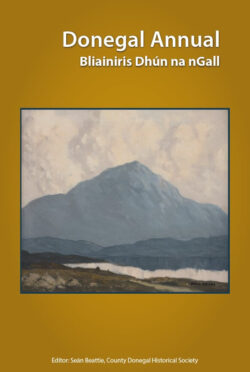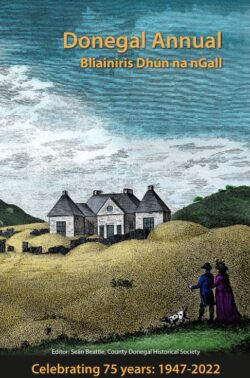As the month of May approaches, thoughts of the old hiring fairs come to mind. Looking at a poster for the fairs in Letterkenny and Derry, I was struck by the departure and travel times of the trains about 82 years ago. While Carn had its own hiring fair, it was on a small scale compared to the event in larger towns where the “big” farmers of the Laggan (in west Donegal), Tyrone and Derry were looking for strong Donegal youths (and girls) for a range of farm jobs. Ploughmen were most in demand in the 1930s but mechanisation meant there were fewer places for workers. Dairy maids were sought after if farmers owned a milk round. Trains left Burtonport at 6 am arriving in Derry in good time for the main sales four and a half hours later. A bottle of tea wrapped in a sock with a slice of hard bread broke the long journey. From Carn, the journey took almost 2 hours to get to Derry if the train ran on time. I met a dairy maid who had worked with Hamiltons of Brownhall, Laghey, at a reunion of hired workers on the old estate and I heard no complaints.
Rates of pay were around £12 for a 6 month season and the going rate for girls was half that amount. Good ploughmen were scarce and could command up to £20 for the season. Accommodation was included. Sunday was a day of rest in most households after the milking was done. Donegal people preferred to work in Protestant households as the Sabbath was strictly observed. It was also known that Protestant farmers insisted on workers going to Mass and paying their Easter dues. Conditions in the 1930s were improving (in manner of speaking) and workers could get a day off to go to a wedding, visit the dentist, or go to town to buy tobacco or clothes. Tobacco smoking was rife and one can only guess the consequences.
In the Burt area, workers congregated outside the church after Mass and they stood out as they spoke Irish. For many workers, conditions were not too bad as many stayed on with the same household, getting married later and settling in the area.
Compulsory school attendance and improved access routes to third level education have resulted in the demise of the hiring fairs. Young people now are more likely to be doing a thesis on the subject rather that taking to the train station before daybreak with a bottle of warm tea. If you had a relative who was hired or have first -hand information on hiring, readers would welcome your comments.
For more information on hiring, see my article on hiring in DONEGAL ANNUAL and DONEGAL – THE MAKING OF A NORTHERN COUNTY (ed. Jim McLaughlin).
Sean Beattie





